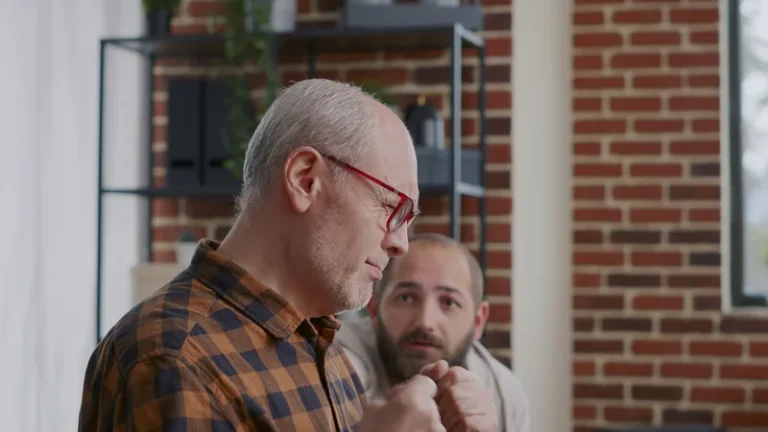
Cognitive dissonance is the tension that is perceived by the conflict cognitive dissonance addiction of a belief and an opposing desire with which the mind is faced.
Effects of Cognitive Dissonance
People who learn that greenhouse emissions result in global warming might experience feelings of dissonance if they drive a gas-guzzling vehicle. To reduce this dissonance, they may seek out new information that overrides the belief that greenhouse gasses contribute to global warming. However, if a person finds that they have difficulty stopping a behavior or thinking pattern that is causing them distress, they can seek support from a qualified healthcare professional, such as a primary care doctor or therapist. If that same person believes the COVID-19 pandemic is real but refuses to wear a mask, their values and behaviors would contradict each other. Cognitive dissonance is a psychological phenomenon that occurs when a person holds two contradictory beliefs at the same time.

GENES, DRUGS, AND COGNITION
The therapist therefore planned to improve his motivation for seeking help and changing his perspective about his confidence (motivational interviewing). Each of the five stages that a person passes through are characterized as having specific behaviours and beliefs. https://ecosoberhouse.com/ Remember, every step towards addressing cognitive dissonance is a step towards freedom from addiction. After all, on the other side of cognitive dissonance lies a life of authenticity, purpose, and genuine happiness—a life free from the chains of addiction.
Addiction and Cognition
- For example, Islam, Whelan, and Brooks [93] found that self-efficacy is negatively related to information overload.
- In one study, researchers asked participants to give speeches that would encourage the audience to take a certain positive action.
- According to Beck et al., (2005), “A cognitive therapist could do hundreds of interventions with any patient at any given time”1).
- When you feel either physical or psychological discomfort, make a note of it to yourself.
- Since working for Elevate, I’ve continued to develop skills related to linear thinking and problem solving, which have contributed to streamlining operations and successful risk management.
When people in addiction recovery begin therapy with a beginners mindset, this allows them to adapt to new thinking styles and healthier ways of behaving. They may even behave in a way that is incongruous to their perception of self, in this case, the individual (to restore Cognitive Dissonance) will often become motivated to change those negative feelings, which ultimately soothes psychological stress. But you can feel caught off guard when those values and beliefs are shaken by social pressures, the presence of new information or having to make a rushed last-minute decision. Sometimes, we can even get caught up in behaving or reacting a certain way that doesn’t necessarily align with how we really feel — and then we end up feeling lost. There are a variety of ways people are thought to resolve the sense of dissonance when cognitions don’t seem to fit together. They may include denying or compartmentalizing unwelcome thoughts, seeking to explain away a thought that doesn’t comport with others, or changing what one believes or one’s behavior.
In a 1986 study, smoking rates approximated 30 percent in population-based controls, 47 percent in patients with anxiety disorder or major depressive disorder, 78 percent in patients with mania, and 88 percent in patients with schizophrenia (Hughes et al., 1986). For example, long-term cannabis users have impaired learning, retention, and retrieval of dictated words, and both long-term and short-term users show deficits in – time estimation (Solowij et al., 2002), although how long these deficits persist is not yet known. As another example, chronic amphetamine and heroin users show a deficits in a range of cognitive skills, including verbal fluency, pattern recognition, planning, and the ability to shift attention from one frame of reference to another (Ornstein et al., 2000). The decisionmaking deficits resembled those observed in individuals with damage – to the prefrontal cortex, suggesting that both drugs alter function in that brain area (Rogers et al., 1999). This article reviews current knowledge on the cognitive effects of drugs and their neurological underpinnings. These effects may be particularly disruptive when individuals are exposed to drugs during brain development, which lasts from the prenatal period through adolescence, and in individuals with mental disorders.
- When a person ignores information and facts in a bid to retain their beliefs, this often results in stagnation.
- In this way, he would be decreasing the importance of dissonant cognition (smoking is bad for one’s health).
- If you would like to address any self-limiting thoughts and beliefs that might be holding you back in your recovery or if you would like help with an addiction – the team at Tikvah Lake Recovery are here to help.
